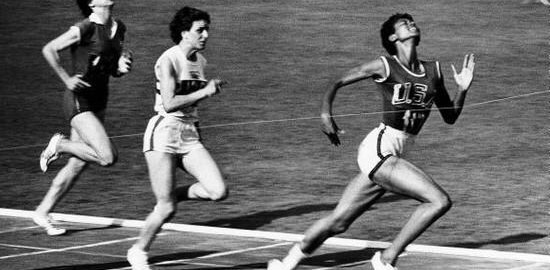“The Triumph Can’t Be Had Without The Struggle”
Earlier this week, I posted on Facebook a short highlight about Wilma Rudolph, an incredibly inspirational human being. If you don’t know much about her, here’s a little about this amazing woman:
She was the 20th of 22 children, born in 1940 with polio and suffered from serious bouts of pneumonia and scarlet fever as a child. Those ailments contributed to a crippled leg requiring her to use metal braces at the age of 5. Many said she would never walk. However, her mother gave her the best care she could and provided physical therapy for her four times a day. At age 11, Wilma removed her braces and amazingly she walked!
When Wilma was 13, she got involved in basketball and track. She especially loved running and started winning races. She was good. Really good. So good in fact that when she was just a sophomore in high school, she entered the Olympics and took home a bronze medal.
After that sweet taste of victory, she was more determined than ever. She kept improving and eventually struck gold in the 100 meters, 200 meters, and 4 x 100-meter relay at the 1960 Rome Olympics to become the first American woman to win three events in track and field during a single Olympics. She became known as the FASTEST WOMAN IN THE WORLD.
When I think about a life well lived, I think of a woman like Wilma Rudolph. One of her signature quotes is, “The triumph can’t be had without the struggle.” The struggles she was forced to deal with were ultimately what made her victories so sweet. Not only did this woman deal with the racism and segregation of her time, but she triumphed over her disabilities and what seemed impossible.
Others in her life may have thought that winning a gold medal in the Olympics was impossible, but she didn’t. She believed in herself. She believed in her training. She believed she could be the best. She took the obstacles and turned them into motivation, strength, and courage. I mean, what did she have to lose? She already experienced defeat since the day she was born but was determined to be the best she could be regardless of her setbacks.
Sadly, Wilma didn’t get to experience much of the second half of her life. She died at the age of 54 of a brain tumor. I wonder what other feats she would have accomplished with her attitude, mindset, and work ethic.
What about you? You have been granted access into the second half of your life. How will you choose to live it? How will you choose to see it? Will you take control or will it control you?
I hope that Wilma’s story has inspired you to live life on a mission with determination, motivation, and a vision of the best YOU in your sights.
Today, think about these questions: “Are YOU on a mission? Have you made the decision to take the obstacles and challenges that you experienced in the first half of your life and use them to motivate you to do it better in the second half of your life?”
I’d love to hear your responses. Reply back and tell me you are going to choose to live the second half of your life.



